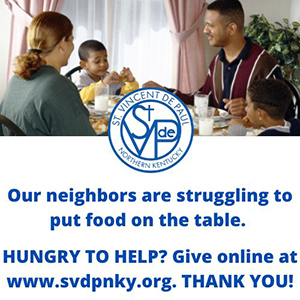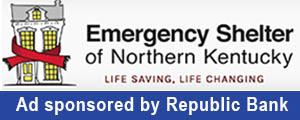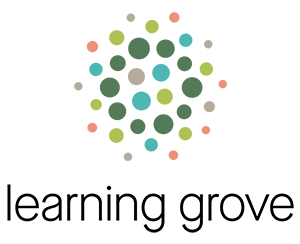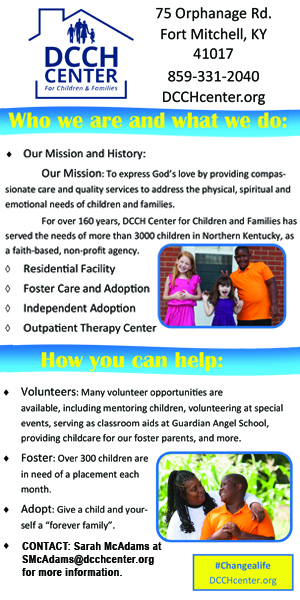By Maridith Yahl
NKyTribune reporter
A person experiencing homelessness has an average lifespan of 50 years of age, almost 20 years less than a person with housing, according to the National Coalition for the Homeless. Welcome House Northern Kentucky works to end homelessness through a multitude of services, including the Street Outreach Program. Since 2017, this innovative program addresses not only housing but physical and emotional needs by providing Outreach Medicine.

Morgan Koranda checks a client (Photo provided)
Morgan Koranda, RN, Street Outreach Nurse, is a critical part of the team. Outreach medicine on the street is its own type of medicine, Koranda says, recently hearing the term at a conference. The need for this is tremendous. “There are programs out there that are available to people and we have these cures or preventative measures for completely preventable diseases, she says. But people are still dying from these.
Recognizing there are diverse circumstances surrounding homelessness is something Kordana has learned.
“People who are chronically homeless, don’t have jobs, haven’t had a job in a while, and who do qualify for Medicare or Medicaid don’t know about the services,” Kordana says. Most people are too busy or put other things first when it comes to wellness checks she says.
Sadly, another issue Kordana has found is an expense problem. She says there are those who have a job, are trying to pay for gas, get into an apartment, and are therefore paying for a hotel, and they do not have a refrigerator for food, leaving them no money for health-related expenses. “They just get above that threshold that they’re not eligible for Medicare,” she says.
She describes the horrible feeling of talking to an insurance connector, then giving the news to someone that they are not eligible for and there is no way to get healthcare. The only access to healthcare they then have is going to an emergency room and incurring a large debt. “It’s pretty disheartening,” she says.

The Mobile Clinic
During the K-Count last year, what they encounter in one night of the year, the team encountered 51 homeless in Boone, 68 in Campbell, and 182 in Kenton. “These numbers are just for people we find living on the streets, not necessarily who is receiving services,” says Kelly Rose, Director of Development & Marketing. “Last year Welcome House served 2,127 men, women, and children experiencing homelessness,” she says.
The Outreach Team connects with people in a few ways. One is to canvas previous homeless camps, areas that look like they are right for camps, and places they have access to services like water.
Another, “very powerful tool,” Koranda says, is businesses reaching out to them, letting them know a person needs help. “We’ve met many people that way, random [stores] that have called in,” she says. With emotion in her voice, she says it makes an impact on the person receiving help. The fact that somebody reached out and said something. Somebody cared enough about this stranger.
A Mobile Health Clinic has scheduled stops at Boone, Campbell, and Kenton County Public Libraries. Please call 859-431-8717 for current days and hours. A grant from Impact 100 was awarded in 2018 allowing Welcome House to purchase and outfit the RV as a mobile health clinic.
When the team meets a person, they ask if they have been connected to any services. Kordana says it helps to build a rapport with them. “Once we establish that, they are more willing to talk about services,” and programs that are available to them, she says.
Kordana helps them by having a conversation about their health conditions, medications, seeing a doctor, and asks if they need a doctor. “It just depends on the client, but it takes six months or more to get that client to open up to us sometimes,” she says. Then some give their entire medical history from birth.

Welcome House mural by Greg D’Amico
“At one point they learn to trust you and they just tell you things,” says Kordana. “I don’t normally push it, I make it very clear that there’s a lot of help I can give them,” offering to help them get insurance, talk to their doctors, or even coronavirus concerns, she says. “Once you develop a relationship they will come and want to do more and more and be more concerned about their health,” she says.
A nurse practitioner has recently partnered with the team, providing medical direction. During the visit, Kordana checks blood pressure and now hands out over the counter medication. Soon they will be offering vision testing and even more services. By collecting data from their clients, Kordana says they will be able to see what their needs are and tailor the services to them.
“We’re going to be very intentional about this. This is a way for us to bridge them into primary care,” she says. She looks forward to engaging more people and encouraging them to engage in their health. “This makes me feel like I’m getting back to the reason why I became a nurse,” says Kordana.
The Street Outreach Team has some items they need. Donations of sleeping bags, blankets, $5 fast-food gift cards (McDonald’s, Wendy’s, Burger King), socks, hot chocolate, disposable cups, and palettes of water can be made by contacting Development & Marketing. Monetary donations can be made on their donation page here.
Welcome House’s Street Outreach is a lifeline to many they serve. There are countless circumstances as to why a person becomes homeless. Providing care and support, dignity and respect, access to the basic human need and right of health care is what this Street Outreach Team does every day. Supporting the Street Outreach Team in their endeavors is an act of kindness, providing hope to someone who needs it.


















